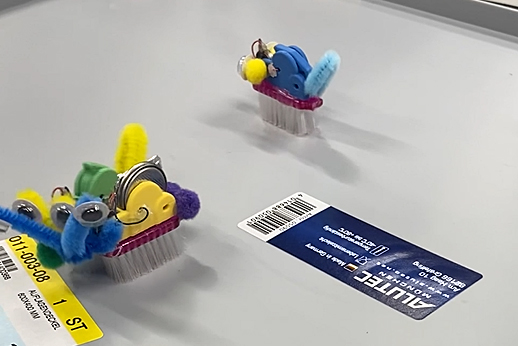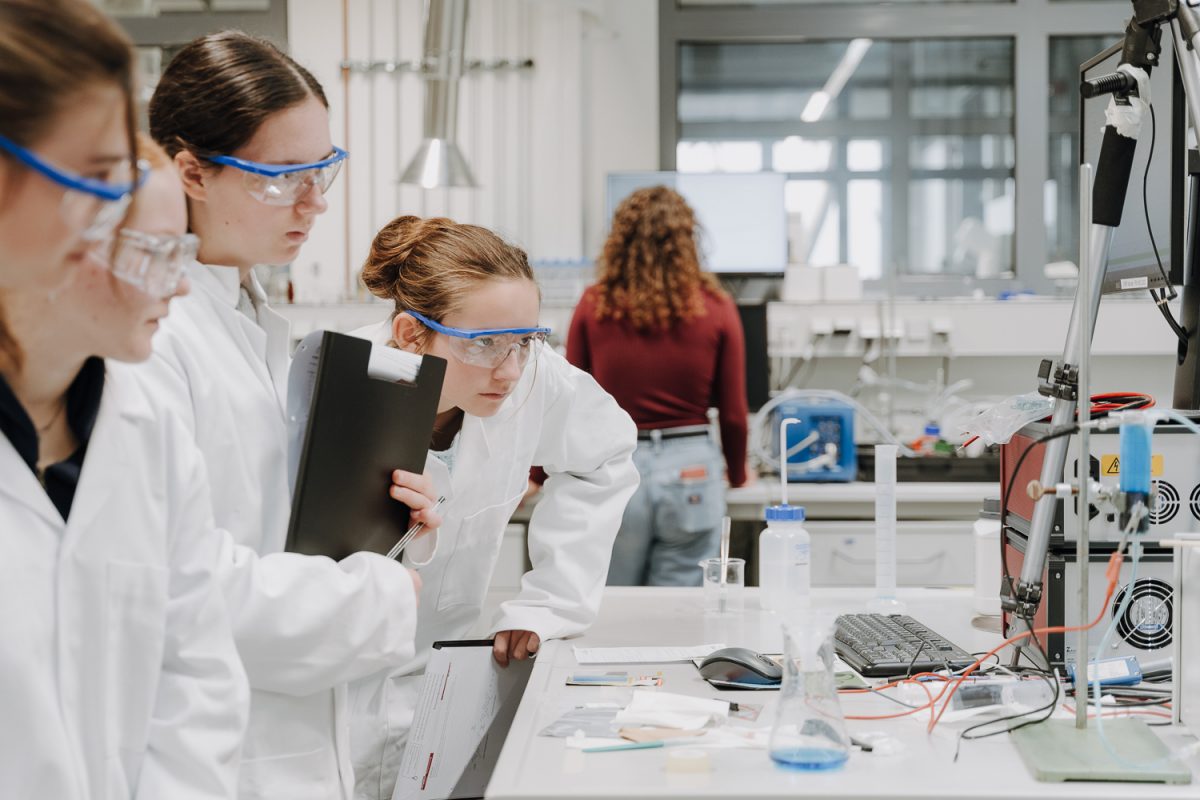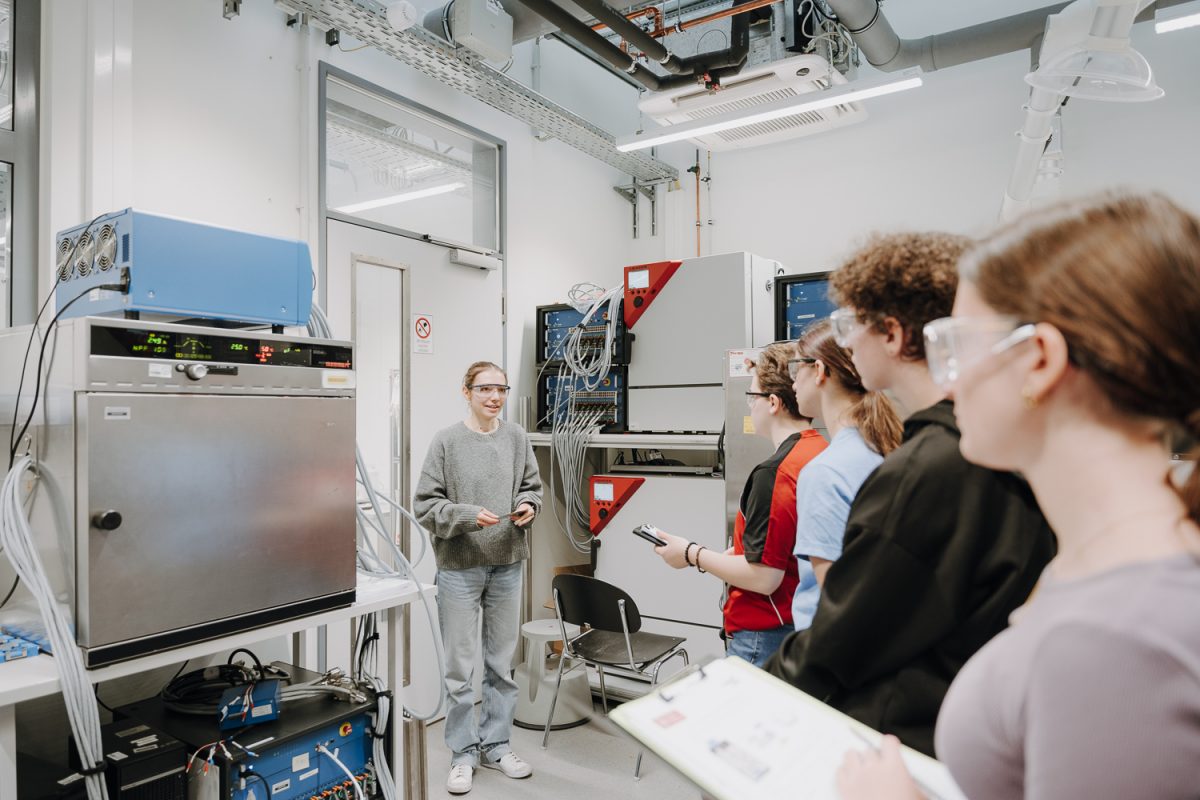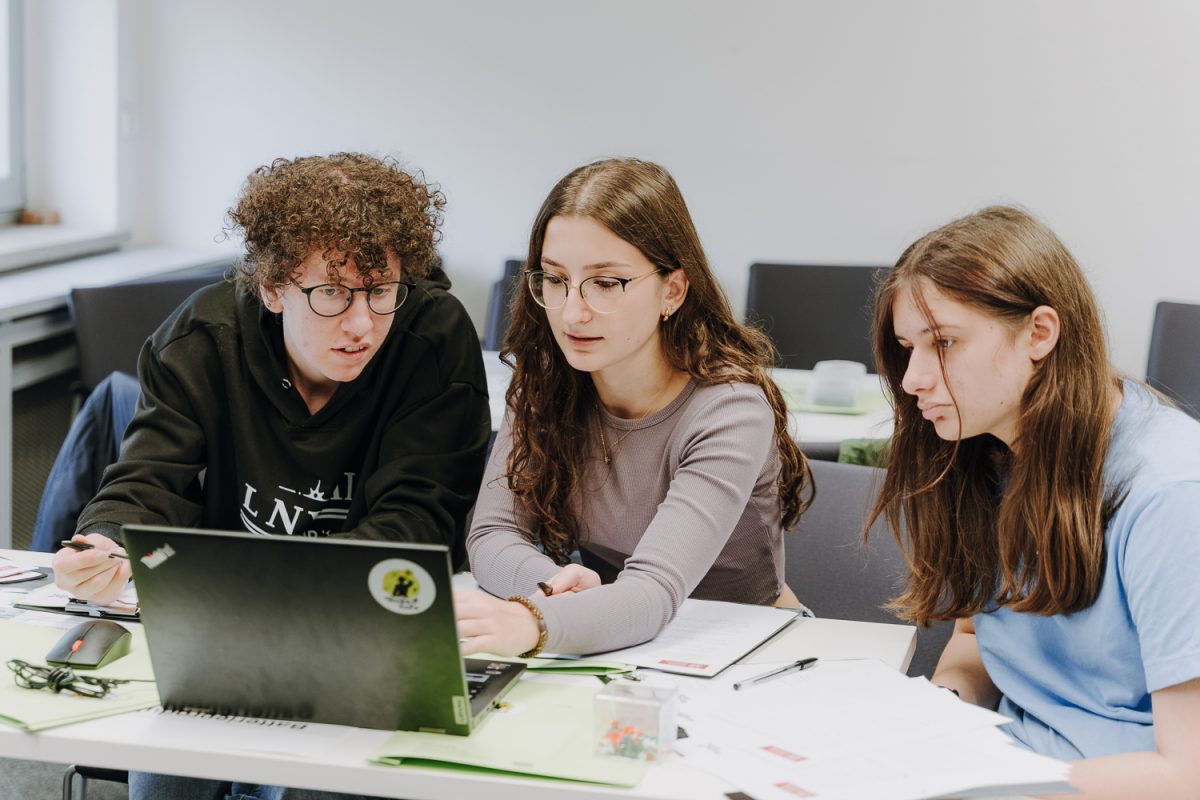Schoolgirls explore batteries at TU Braunschweig "Role2Role" research camp – more planned until 2027
Battery research up close: During the autumn holidays, 16 secondary schoolgirls conducted experiments at TU Braunschweig, exploring different types of batteries, how they are made and how they are recycled. The research camp was part of the new joint project “Role2Role”of Technische Universität Braunschweig and Haus der Wissenschaft. “Role2Role” offers young women insights into highly topical and socially relevant STEM subjects in the fields of battery development and fuel cells.

Sixteen schoolgirls from across northern Germany spent four days in Braunschweig as part of the project. They were accompanied and supervised by staff from the Departments of Science Education (IFdN), Educational Psychology (IPP) and Energy and Systems Engineering (InES), as well as the House of Science. Photo credit: Silja Klemenz/TU Braunschweig

Small toothbrush robots whizz across the laboratory table, powered by self-built button cells. Photo credit: Hannah Kannegießer
After completing six online course units, the students, who came from all over Lower Saxony, got hands-on at TU Braunschweig at the end of October. Small toothbrush robots whizzed across the laboratory table at the Institute for Energy and Systems Process Engineering (InES), powered by self-built button cells. At four stations, the sixteen young women not only assembled the button cells for the small robots. They also experimented with a redox flow battery filled with Blue Curaçao liqueur, worked with a glove box (an insulated box with gloves) and tested the influence of various variables on cell capacity in a simulation. “It’s great that we get to do and try out so much ourselves here!” was the unanimous verdict.
A look behind the scenes
The “Role2Role” research club is funded by the Federal Ministry of Research, Space and Technology (BMFTR) until 2027. Anne Geese is coordinating a joint project involving the Department of Science Education (IFdN), the Institute of Educational Psychology (IPP), the Institute of Energy and Systems Engineering (InES), and the House of Science. “In recent years we have gained a lot of experience with tailor-made offers for interested school students. In the SE²A Cluster of Excellence, we have been running the changING research club for young people in Braunschweig since 2019. Now, with “Role2Role”, we have the opportunity to invite those who do not live in Braunschweig and cannot regularly take advantage of the offerings of TU Braunschweig’s offerings here on site,” says Anne Geese.
Thanks to BMFTR funding, the Institute for Science Education has been able to prepare age-appropriate learning content. Since September, weekly online courses have been offered to students in collaboration with scientists from battery research to help them prepare. The stay in Braunschweig was organised by the House of Science. Educational psychology focuses on accompanying research: What effect does such a measure have on the students? How do their motivation and interest change? Does it make them feel more connected to the STEM field?
Networking and future prospects
The supporting programme also fostered a sense of belonging. There was a Science Watch Party focusing on the role of women in science, as well as a networking evening attended by women from the worlds of business and research. The project’s student mentors also benefited, gaining insights into career opportunities.
After three intensive days offering many opportunities for professional development, the research camp concluded with a guided tour of Braunschweig to showcase the city as a potential place to study. As everyone said their goodbyes at the train station, they all agreed that it had been a really special time. Four more camps will take place between now and 2027, with one taking place in spring and one in autumn. The toothbrush robots are ready and waiting.



